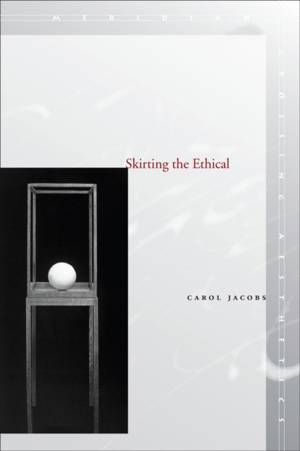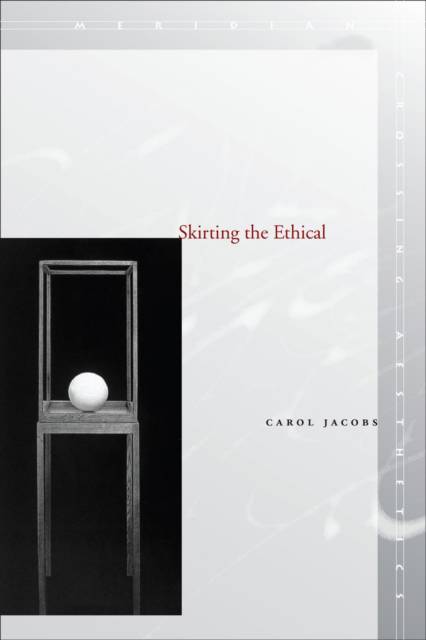
- Retrait gratuit dans votre magasin Club
- 7.000.000 titres dans notre catalogue
- Payer en toute sécurité
- Toujours un magasin près de chez vous
- Retrait gratuit dans votre magasin Club
- 7.000.0000 titres dans notre catalogue
- Payer en toute sécurité
- Toujours un magasin près de chez vous
Description
Skirting the Ethical offers highly original readings of six works, each noted for its politico-ethical stance. The first four (Sophocles' Antigone, Plato's Symposium and Republic and Hamann's "Aesthetica in nuce") have a recognized and honored place in the canon. The last two, Sebald's The Emigrants and Jane Campion's film The Piano, are exemplary for our contemporary scene. Nevertheless, the straightforward assumptions about justice, divine and state power, the good, and identity politics that every reader or viewer inevitably comes upon are disrupted when one takes into account the role of language: both the way in which language is talked about and the way in which it performs. What emerges is a non-prescriptive ethics of another order that offers a resistance to power and simplistic conceptualizations of truth, an emancipation from the "must-be" that implies an ever-to-be-renewed renegotiation--a responsability that has much to do with the act of critique or interpretation.
Spécifications
Parties prenantes
- Auteur(s) :
- Editeur:
Contenu
- Nombre de pages :
- 256
- Langue:
- Anglais
- Collection :
Caractéristiques
- EAN:
- 9780804757898
- Date de parution :
- 26-11-07
- Format:
- Livre relié
- Format numérique:
- Ongenaaid / garenloos gebonden
- Dimensions :
- 155 mm x 231 mm
- Poids :
- 453 g

Les avis
Nous publions uniquement les avis qui respectent les conditions requises. Consultez nos conditions pour les avis.






